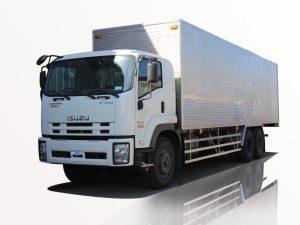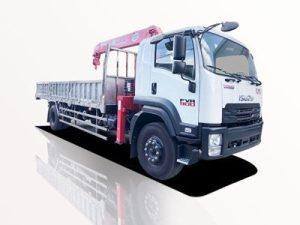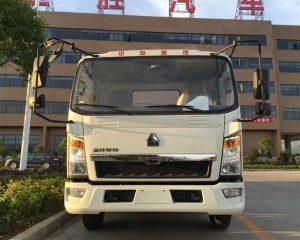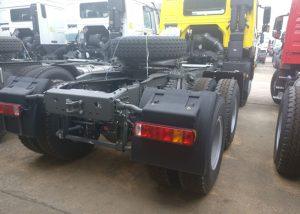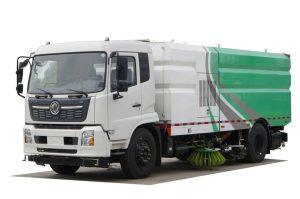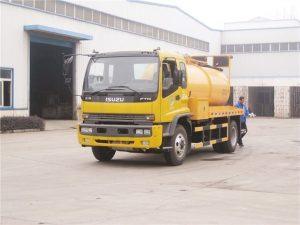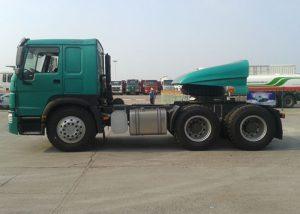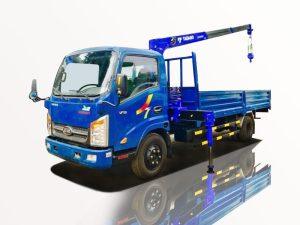Monday to Saturday - 8:00 -17:30
Understanding Slide-In Wrecker Boom: A Comprehensive Guide
The slide-in wrecker boom is a vital piece of equipment in the towing industry, providing the flexibility and efficiency needed for various recovery tasks. In this article, we will explore everything about slide-in wrecker booms, including their design, benefits, operation, maintenance, and much more. By the end, you will have a thorough understanding of this indispensable tool, complete with practical examples and helpful tips.
1. What is a Slide-In Wrecker Boom?
A slide-in wrecker boom is a type of crane used in towing and recovery operations. Its primary function is to lift and move vehicles that are immobilized due to accidents, breakdowns, or other reasons. Unlike traditional towing methods, slide-in booms can be easily mounted onto the bed of a towing vehicle, making them incredibly versatile.
1.1 Key Components
Slide-in wrecker booms consist of several critical components:
- Boom Arm: The main lifting component that extends and retracts to reach vehicles.
- Winch: A device that pulls the vehicle onto the wrecker.
- Mounting Plates: Used to secure the boom to the truck bed.
- Hydraulic System: Powers the movement of the boom arm and winch.
- Cables and Pulleys: Facilitate lifting and pulling actions.
2. Advantages of Using a Slide-In Wrecker Boom
There are numerous benefits to employing a slide-in wrecker boom, making it a popular choice among towing professionals.
2.1 Versatility
Slide-in booms can handle various towing and recovery tasks, whether it’s light-duty recovery or heavy-duty lifting. This adaptability allows operators to manage multiple scenarios with one piece of equipment.
2.2 Reduced Weight
Compared to traditional fixed booms, slide-in options are typically lighter, leading to better fuel efficiency for the towing vehicle and easier maneuverability.
2.3 Easy Attachment and Detachment
The design of slide-in booms allows for quick attachment and detachment from the tow vehicle, enabling operators to switch between jobs without significant downtime.
2.4 Increased Safety
Modern designs often integrate safety features such as stabilizers and load limit indicators, making the lifting and recovery process safer for operators.
3. How to Choose the Right Slide-In Wrecker Boom
Selecting the right slide-in wrecker boom requires careful consideration of several factors:
3.1 Load Capacity
Understand the maximum weight your boom can lift. Choose a model that meets or exceeds the types of vehicles you typically recover.
3.2 Boom Length
The length of the boom affects how far it can reach. Ensure it has adequate reach for your typical recovery scenarios.
3.3 Hydraulic Performance
Evaluate the hydraulic system’s capabilities, including extension speed and lifting power, to determine if it suits your operational needs.
3.4 Manufacturer Reputation
Research the manufacturer to ensure they have a solid reputation for quality and reliability. Reviews and testimonials can be valuable in this regard.
4. Best Practices for Operating a Slide-In Wrecker Boom
To maximize efficiency and safety while operating a slide-in wrecker boom, follow these best practices:
4.1 Pre-Operational Checks
Before use, inspect the slide-in wrecker boom for any signs of wear or damage. Check hydraulic fluid levels, cables, and mechanical components.
4.2 Proper Setup
Always set up the boom on a level surface and use stabilizers if available to prevent tipping or instability during lifting operations.
4.3 Communication
Ensure clear communication among crew members during operations, especially when lifting or moving vehicles.
4.4 Load Management
Be mindful of weight distribution and avoid exceeding the boom’s rated capacity. Use caution when lifting vehicles with an uneven weight distribution.
5. Maintenance Tips for Slide-In Wrecker Booms
Proper maintenance is crucial for ensuring the longevity and performance of your slide-in wrecker boom.
5.1 Regular Inspections
Conduct routine inspections to identify any wear or potential issues early on. Pay close attention to the hydraulic hoses, cables, and winch mechanisms.
5.2 Lubrication
Regularly lubricate moving parts such as pulleys and winches based on the manufacturer’s recommendations to ensure smooth operation.
5.3 Hydraulic Fluid Maintenance
Check hydraulic fluid levels frequently and replace them according to maintenance schedules to prevent hydraulic system failure.
5.4 Cleanliness
Keep the boom and its components clean, as debris can cause damage and impede functionality.
6. Common Applications of Slide-In Wrecker Booms
Slide-in wrecker booms have various applications across different scenarios:
6.1 Accidental Recovery
The primary use of slide-in booms is in recovering vehicles involved in accidents, allowing quick and safe retrieval.
6.2 Off-Road Recovery
These booms are also effective for off-road recovery, as their lightweight design allows easy transport to remote locations.
6.3 Capturing Stranded Vehicles
7. FAQs about Slide-In Wrecker Booms
7.1 What is the average cost of a slide-in wrecker boom?
The cost can vary significantly based on load capacity, brand, and features, typically ranging from $5,000 to $20,000.
7.2 How much weight can a slide-in wrecker boom lift?
Most slide-in booms can lift between 5,000 to 10,000 pounds, but specific capacities should be checked with the manufacturer.
7.3 Do I need a special license to operate a slide-in wrecker boom?
Licensing requirements vary by location, but generally, operators may need a commercial driver’s license (CDL) and safety training.
7.4 How do I maintain a slide-in wrecker boom?
Regular inspections, lubrication, hydraulic fluid management, and cleanliness are essential for maintenance.
7.5 Can a slide-in wrecker boom work on uneven terrain?
While they can operate on uneven terrain, using stabilizers and ensuring the vehicle is on level ground is crucial for safety.
7.6 What safety features should I look for in a slide-in wrecker boom?
Look for models with load limit indicators, safety latches, stabilizers, and robust hydraulic systems to ensure safe operation.


